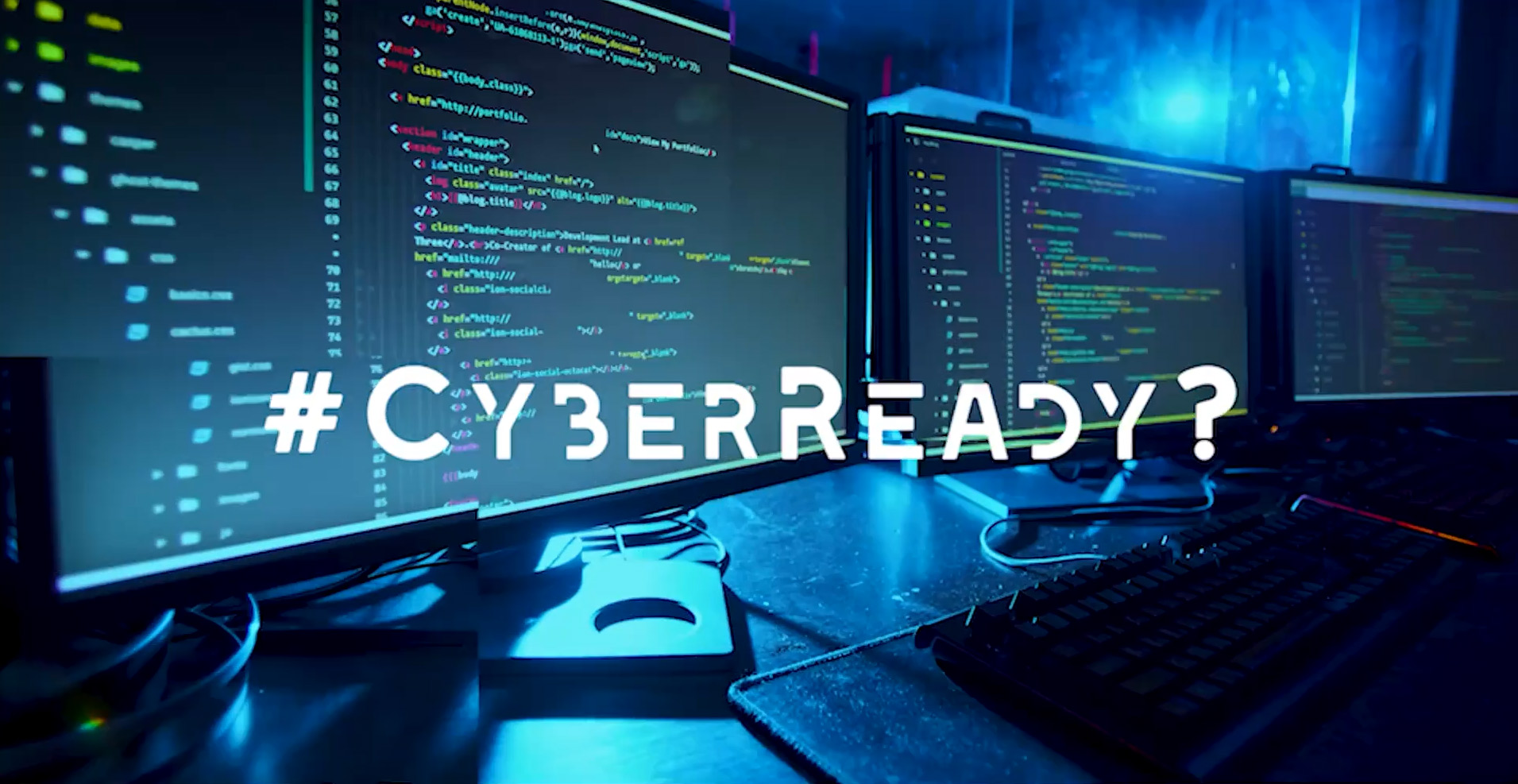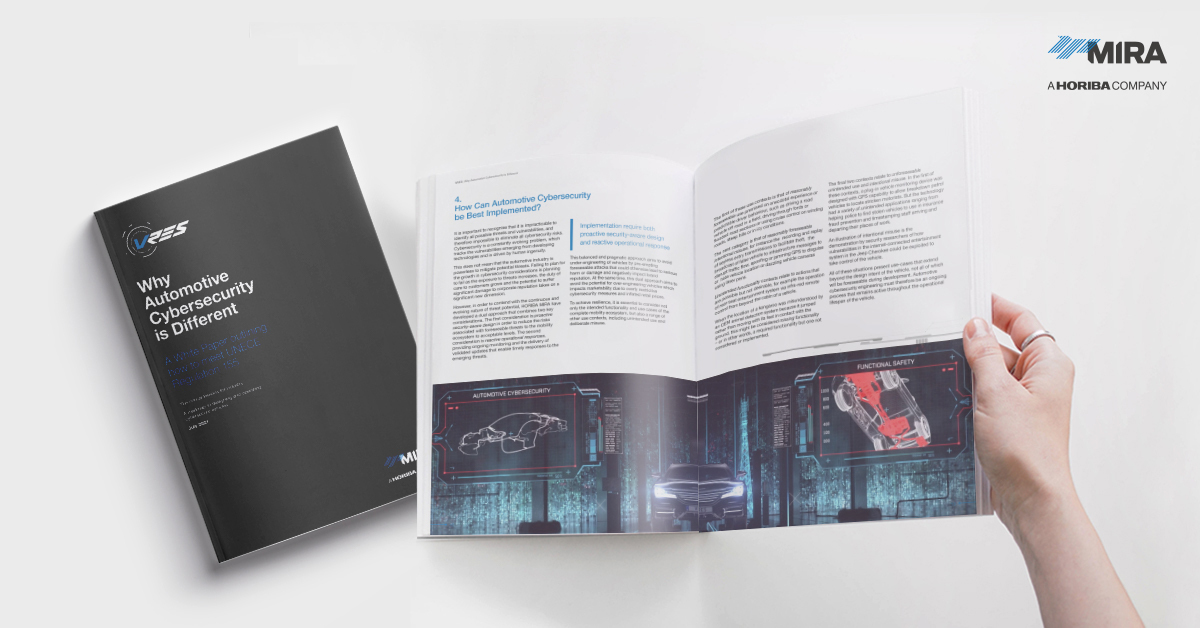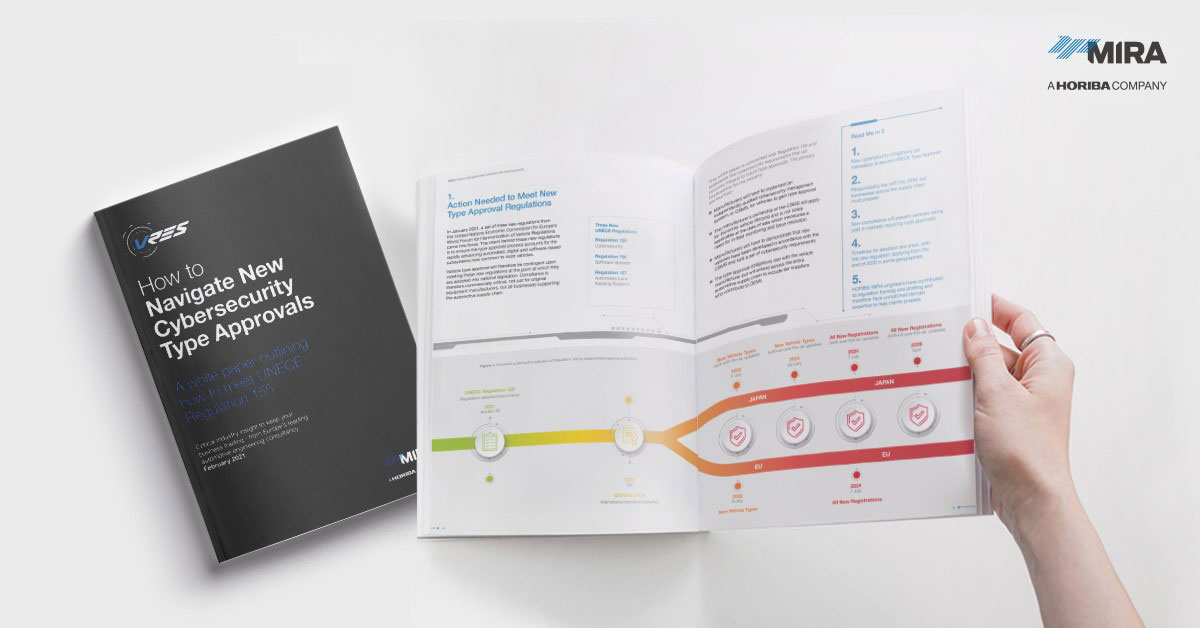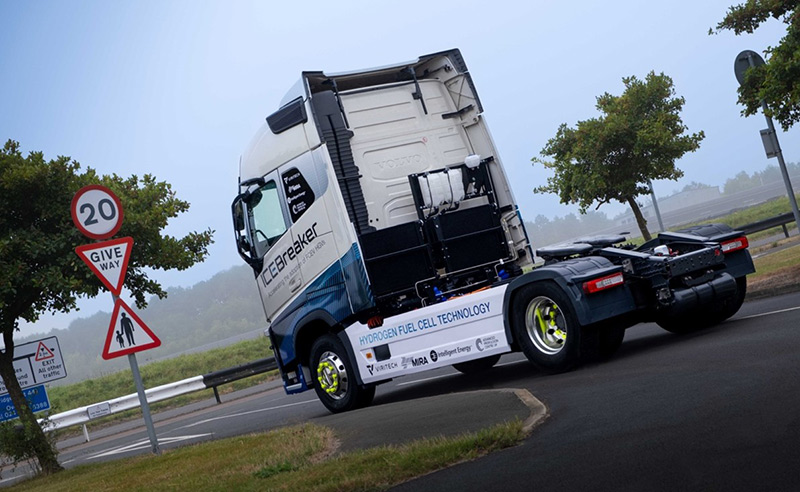Automotive Cybersecurity Verification and Validation – Striking the Balance Between Risk and Cost
HORIBA MIRA’s Third Automotive Cybersecurity White Paper
Latest paper addresses how the industry can strike a balance between over and under-engineered cybersecure solutions
- Third instalment in a four-part series of expert automotive cybersecurity White Papers
- This edition addresses the challenges presented by through lifecycle testing
- In the absence of codified rules, the paper outlines the type of cybersecurity testing that vehicle manufacturers can consider
- The paper further outlines the facilities and infrastructure needed to manage appropriate testing solutions
12 May, 2022. Nuneaton, Warwickshire. Europe’s leading automotive engineering consultancy, HORIBA MIRA, today publishes the third in a series of White Papers focusing on automotive cybersecurity. Today’s freely available White Paper entitled Automotive Cybersecurity Verification & Validation – Striking the Balance Between Risk and Cost explains why cybersecurity must be treated differently to other automotive engineering attributes, setting out guidance and recommendations for through lifecycle testing while considering the reputational risks associated with under-engineered solutions and the costs and commercial liabilities of over-engineered responses to new regulations.

Today’s White Paper is free to download and available here.
The previous White Paper, Why Automotive Cybersecurity is Different – explores the threat landscape, why automotive is a unique use case, best practice in implementing proactive engineering design and reactive operational responses, approaches to cybersecurity testing and achieving cybersecurity assurance and is free to download and available here.

The first White Paper in the series, How to Navigate Cybersecurity Type Approvals, details how vehicle manufacturers must institute a cybersecurity management system (CSMS), take full lifecycle responsibility for cybersecurity of their product lines and submit to routine auditing of these new cybersecurity protocols and is free to download and available here.

As part of its cybersecurity consulting services HORIBA MIRA has a suite of services expressly designed to help the industry prepare for the impact of UNECE Regulation 155. These include a UNECE Readiness Programme, peer-to-peer training, full engineering consultancy, verification & validation services, operations solutions and a CSMS audit programme to benchmark regulatory preparedness.







